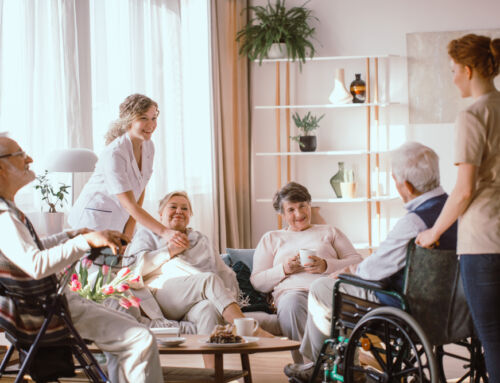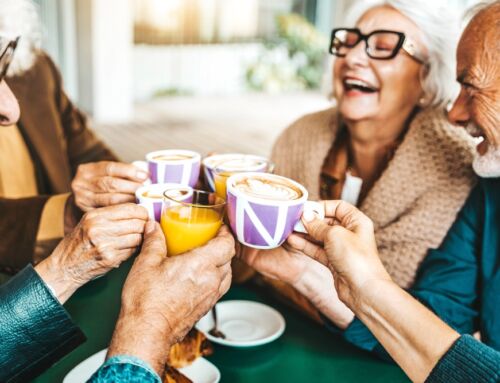Last week’s post on people’s fear of catching the “old disease” got me thinking about a related topic that I often discuss when I present to groups: ageism and the so-called “invisible senior.” I wrote a blog post about this issue last fall, but I also recently gave a talk at the Key5 conference in Charlotte about the tremendous mistake our society makes when we forsake our elders, overlooking their many contributions and significance in the world.
A slow fade into obscurity
Too often, seniors who were valued members of their community when they were younger—as teachers, doctors, business people, etc.—lose their sense of self-worth as they retire and grow older. Many of these seniors are still interested in making a difference in the world, contributing to society, but unfortunately, our society frequently doesn’t recognize their continued desire to give back. And in this situation, everyone loses: The senior who feels increasingly isolated and insignificant, and the community in which they live that isn’t seeing their worth and harnessing their potential.
As I discussed in my Key5 presentation, this issue is all-too common. I shared the story of Rita, who is mostly alone since her husband passed away a few years ago, friends have died or moved away to be closer to family, and her adult children are busy with their own lives and families. Rita doesn’t feel safe driving anymore, so she watches around six hours of TV a day—there just isn’t much else to do to pass the time. She worries that she’s not only losing a purpose in her life but that she becoming a burden to her family.
>> Related: The Senior Loneliness Epidemic & Solutions to “Cure” It
A cure for isolation
The loneliness that people like Rita are experiencing isn’t just about being alone. Yes, loneliness can be the result of a loss—of a loved one for example—but it also can be caused by a sense that you are no longer valued by society—that you no longer matter as an individual.
Studies show that in the U.S., nearly half of seniors struggle with loneliness, which in turn increases their chance of physical and mental decline and even premature death. But conversely, seniors who participate in social and volunteer activities,—such as intergenerational programs in which older people actively engage in activities with younger people—experience fewer falls, do better on memory tests, and are in better physical shape than their peers who do not take part in such programs. And the benefits work both ways. The children who participate in intergenerational programs have less school truancy and are less likely to try drugs and alcohol.
>> Related: Intergenerational Programs Unite the Young and the Young-at-Heart
A treasure trove of talent
But there are other important ways that seniors can contribute to our social fabric as well. In my Key5 discussion, I share the story of a woman named Alma Bob, who is 103 years old. Alma Bob regularly offers lectures to medical students at Penn State University, sharing her personal stories and experiences with aging. Her insightful words give those medical students a first-hand account on the aging process, providing them with guidance on how to best serve and care for our growing senior population.
It may sound a bit grandiose, but if we as a society could find more effective ways to harness this type of knowledge and expertise among older generations, I truly believe we could change the world from the top down—from the oldest among us to the youngest. I don’t think it’s an overstatement to say that by sharing her insights with future doctors, who will go on to practice medicine across our country and around the globe, Alma Bob is making a tremendous and far-reaching impact.
>> Related: Encore Careers for Seniors: Finding Job Satisfaction…Again
My challenge to you…
Seniors are a too-often untapped resource in our communities. We must take the initiative: actively look for opportunities to reach out to older people, especially those at risk of becoming socially isolated, and bring them back into the fold. Are there opportunities within your workplace, your house of worship, your children’s school, organizations you’re involved with, where older generations could contribute their time and talents? I encourage you to take this question to heart and explore the possibilities.
Seniors have a lifetime’s worth of experience and wisdom. They have so much they can teach us, and we have a lot to learn.






